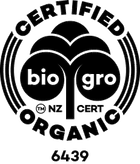Labels like "vegan," "clean," and "natural" are commonly seen on skincare products. These terms can often be misunderstood or used interchangeably, which can be quite confusing for consumers. It's important to recognise that each label carries distinct meanings and implications and doesn't necessarily equate to one another.
What Does Vegan Mean in Skincare?
A vegan skincare product is one that does not contain any animal-derived ingredients or by-products. This means they exclude components such as honey, beeswax, collagen, lanolin, and other substances obtained from animals.
The primary appeal of vegan products lies in their commitment to not exploiting animals in any part of the production process. This ethical choice aligns with the values of many consumers who seek to minimise their impact on animal welfare.
Are Carol Priest Products Vegan?
While we offer a range of vegan products, not all of our skincare range is vegan. This is because we use Manuka Honey and Beeswax in a range of our products due to their exceptional skin and hair benefits.
However, this doesn't make us non-clean or non-natural. We are dedicated to the purity and naturalness of our products. We prioritise high-quality, natural ingredients and maintain rigorous standards to ensure our products are as clean and safe as possible.
This doesn't mean we don't consider animal welfare and ethical consumption either. We believe that all sentient beings have the right to a humane life. We never test our products on animals, do not export to countries that still engage in animal testing, and do not buy raw materials from companies that do.
The Truth about Vegan Beauty
Vegan Doesn't Always Mean Clean or Natural
It is important to understand that the term "vegan" simply means no animal-derived ingredients or by-products are used. While vegan products may have a smaller environmental footprint due to the avoidance of animal agriculture, they are not automatically "clean" or "natural".
The term "clean" in skincare typically refers to products that are free from potentially harmful ingredients such as parabens, sulfates, phthalates, and synthetic fragrances. "Natural," on the other hand, implies that the ingredients are derived from natural sources, free from synthetic chemicals, and minimally processed.
However, many vegan products still contain synthetic ingredients that are neither clean nor natural. Conversely, a clean or natural product can include animal-derived ingredients (like ours), provided they meet certain safety and sustainability criteria. This distinction is crucial for consumers who prioritise not only the absence of animal exploitation but also the overall purity and naturalness of their skincare regimen.
Does Vegan Mean Cruelty-Free?
Vegan" doesn't necessarily mean cruelty-free either. For example,
Vegan but Not Cruelty-Free
A product can be free of animal-derived ingredients yet still be tested on animals. This can happen if the company adheres to vegan formulations but does not have strict policies against animal testing, either directly or through third parties.
Cruelty-Free but Not Vegan
Conversely, a product can be cruelty-free, meaning it was not tested on animals, but still contain animal-derived ingredients like beeswax, lanolin, or collagen. This is common in products that aim to avoid animal cruelty but do not cater specifically to vegan consumers.
Vegan Certification
If you are looking for a truly vegan product that also considers animal welfare, look for certified vegan products. Vegan certification combines both vegan and cruelty-free standards, ensuring that products are free from animal-derived ingredients and not tested on animals. However, note that this doesn't ensure cleanness or naturalness of a product.
Navigating the Vegan and Clean Beauty Landscape
To make informed choices, consumers need to look beyond the vegan label and consider the overall ingredient list of beauty products. Familiarise yourself with common harmful ingredients and scan product labels to ensure they are not included. Don't just rely on "clean", "non-toxic" labels as the beauty industry is not regulated and everyone's clean standards is different.
Look for certifications from reputable organisations (i.e., EWG, NATRUE, EcoCert, BioGro, etc.) that ensure the cleanliness or naturalness of a product; but still have a thorough look at the ingredient list to ensure it doesn't contain any animal-derived ingredients either.













